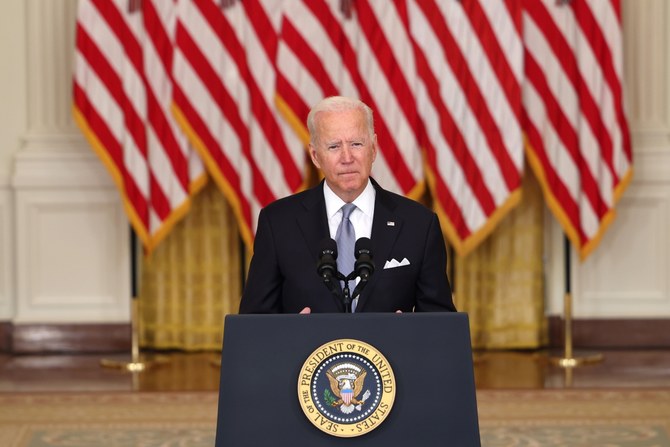Kerry Boyd Anderson
Two years after the US and its allies withdrew from Afghanistan, partisan political views in Washington have hardened, while foreign policy experts are starting more comprehensive reviews of the entire war.
The American public strongly supported pulling out of Afghanistan but was disappointed in how the war ended. Polling at the time of the withdrawal showed that a strong majority of Americans wanted to end the war and believed that the US had failed to achieve its goals in Afghanistan. Polling also found that a slight majority disapproved of President Joe Biden’s handling of the withdrawal, while the event marked a notable decline in his approval ratings. The partisan political narratives have changed little. Republican leaders and commentators argue that Biden is solely responsible for the chaotic and deadly nature of the withdrawal, while ignoring the reality that Biden inherited limited options from the Trump administration. The Republican-controlled House of Representatives has held hearings to highlight the tragedy of the withdrawal and place blame on the Biden administration. Afghanistan is unlikely to be a major point in the presidential election, but Republicans will try to use it against Biden.
On the Democratic side, there is a mix of blaming the Trump administration and simply hoping to move on. In April, the White House produced a report that largely blamed the Trump administration for its 2020 deal with the Taliban, its drawdown of troop numbers and a lack of planning for an intended withdrawal. Democratic leaders acknowledge that Biden made some errors but blame the Trump administration for the most important mistakes. With political perspectives set in stone, the discussion among foreign policy experts is more interesting. Within think tanks and among experts with experience shaping and implementing Afghanistan policy throughout multiple presidential administrations, there is a more thoughtful review occurring. A year ago, the focus in Washington was primarily on reviewing the last two years of the war, especially the Trump deal with the Taliban and then the final withdrawal under Biden. Now, two years after the withdrawal, there appears to be more space for broader, nuanced discussion about the entire 20 years of US combat in Afghanistan.
The US’ war in Afghanistan covered two decades, including two Republican and two Democratic presidential administrations. Among those administrations, Congress, the federal bureaucracy, the US military and Afghan leaders, there is plenty of blame to go around. While politicians engage in finger-pointing, foreign policy experts are trying to take a big-picture look at what happened and to identify lessons. This work is just beginning. In December 2021, Congress established a bipartisan Afghanistan War Commission to conduct a review of US policy toward Afghanistan during the full 20 years of war. For this commission and other experts, there is plenty of material already available for study and further documents and testimony will emerge. There is a general consensus that the war was a failure and that the withdrawal was a debacle. The questions are more about why and how.
The expert discussion about the war is starting to take shape. Many experts – including some Republicans and even some who worked in the Trump administration – believe that the US gave up most of its leverage in return for very little in the 2020 deal with the Taliban. While it was obvious that the US wanted out of the war, better diplomacy could have contributed to a preferable conclusion. Previous administrations also bear some responsibility for missing opportunities to negotiate with the Taliban from a position of strength. The 2003 invasion of Iraq made Afghanistan a secondary priority for Washington, diverting many resources. The Obama administration recognized that and tried to correct course, but much of the damage was already done, and the Obama administration made its own mistakes.
Other critiques fall under the general category of failing to understand Afghanistan and adapt to the country’s realities. For example, building a centralized Afghan military with good equipment but lacking in other fundamental areas was a mistake. The influx of foreign aid often was not wisely distributed. Corruption was a massive problem that absorbed significant amounts of aid. US policy also suffered from unclear and frequently changing goals. Was the US in Afghanistan solely to defeat Al-Qaeda? To defeat all terrorists? To ensure that the Taliban could never regain power? To conduct nation-building? To ensure stability? Leaders and policymakers often lacked clear answers to these questions and failed to clearly communicate their goals to the American public in honest and straightforward ways. While much of the power and thus responsibility was held by presidential administrations, Congress also failed to provide sufficient oversight – at least oversight that put the nation’s interests ahead of scoring partisan PR points.
There were other mistakes, including those related to military operations and political organization. These include losing Afghan support through the collateral damage of war. The US and its allies had some achievements. Afghan women gained far more rights and there were other significant economic and humanitarian successes. For many Afghans in cities, particularly Kabul, life improved. The desperate desire of so many Afghans to flee in August 2021 demonstrated what they expected from life under the Taliban.
Americans will probably never reach a full consensus on what went wrong in Afghanistan. Scholars, policymakers and citizens still debate what went wrong in the war in Vietnam, why the US invaded Iraq, and so on. A consensus on Afghanistan will likely be elusive, but the coming years will produce improved understanding and perhaps some useful lessons.







